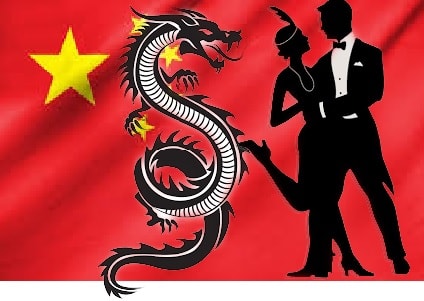Revolution in November
The views of the Authors are not necessarily the views of Enigmose.
There are many qualified candidates for the title of second most consequential event of 2020, right after coronavirus and its associated worldwide economic implosion.
The global reach of the George Floyd protests comes to mind, as does the still-unfolding China–India clash in the Himalayas. Perhaps North Korea or Iran will deliver another crisis unto the world. Possibly more deserving than any of these, however, is China’s planned rollout of its digital yuan, through which the Communist Party intends to upend the U.S.-led financial world order.
China has been conducting intensive research on a potential centralized digital currency since at least 2014. The Digital Currency Electronic Payment (DCEP) plan, popularly known as the digital renminbi or digital yuan, was announced by the People’s Bank of China (PBOC) in October 2019. In an op-ed published in the Global Times, a Communist Party mouthpiece, leading Chinese academic Huang Zhen declared that the digital yuan will “likely” become the “world’s first sovereign digital currency,” before spending the rest of the article attacking Facebook’s rival digital currency project, Libra (more on that later).
While the PBOC has yet to fully commit to a timeline for rolling out the digital yuan, its efforts appear to be well under way. Pilot trials have been conducted in several cities so far this year, and officials have indicated that the currency will be ready for use by visitors to China during the 2022 Winter Olympics in Beijing.
China aims for economic omniscience
The digital yuan can be broadly classified as a central bank cryptocurrency, a subcategory of digital currency. The central bank aspect is self-explanatory: the currency would be controlled exclusively by the PBOC, China’s central bank. The digital yuan’s most radical departure from the norm would be the use of cryptography to verify and secure currency ownership and transaction. This added layer of security means that the currency will be recognized as legal tender and exchangeable between individuals without requiring a bank as an intermediary.
Terms like “cryptocurrency” may evoke more familiar currencies like Bitcoin, and indeed the (in)famous digital asset shares one of its defining features — strong cryptography — with the digital yuan. In other respects, however, the two currencies could not be more different. Bitcoin originated, and is based on, peer-to-peer technology called blockchain. Every transaction made in bitcoin has its verification “distributed,” meaning Bitcoin’s entire history is shared and synchronized between the millions of users in its network through various consensus mechanisms. Because Bitcoin’s network is so vast, it is practically impossible for any single user to accrue enough computational power to take control of the ledger. This places Bitcoin beyond the command and oversight of any central authority, resulting in it becoming the near-universal currency of online black markets in recent years.
The digital yuan, by contrast, is not distributed: it is entirely within the jurisdiction of the PBOC. In contrast to Bitcoin, whose mission statement explicitly revolves around decentralization and dispersal of power away from government bodies, the digital yuan represents a vision of hyper-centralization that traditional cash is unable to achieve. If China is indeed planning to transition to a digital-only economy, the Communist Party would be able to achieve nothing short of economic omniscience: every cash reserve, transaction, and account would exist only with the knowledge and consent of the government.
This has, on its face, some benefits. It would hamstring unethical commerce and deter the bribes and tax evasion that characterize China’s notoriously corrupt economy. Anyone who knows Xi Jinping’s government, however, knows that the last thing it needs is yet another method through which to enact high-tech authoritarianism. The digital yuan would put the financial lives of every Chinese citizen in the palm of the PBOC’s hand. Dissidents could be tracked and instantly bankrupted. Billionaires could be made even more pliable to the whims of Beijing than they already are.
But as much as the Chinese government cares about maintaining control at home, its primary goal is spreading financial influence abroad. Its ultimate objective is to topple the dollar domination that has kept the U.S. at the top of the global financial pecking order for several decades. This process begins with introducing renminbi as an alternative international currency starting with China’s partners in the global south. For this purpose, the digital yuan serves as an ideal catalyst.
Forcing Washington’s hand
Being state-guaranteed (rather than backed by private banks like all online deposits at the moment), secure, scalable, and relatively frictionless, central bank digital currencies have the potential to outcompete traditional currencies in the development of cross-border monetary systems.
The U.S. dollar’s status as the global reserve currency has made it arguably the most potent power projection tool in history. ... Full Story @ American Spectator
How Beijing Buys Influence
The Chinese Communist Party is adept at peeling off allies. It exploits the weaknesses of its targets to enlist them in its cause.
The Chinese Communist Party is waging information warfare to shape American public opinion and influence our economic and government policy to their benefit. The CCP doesn’t shape public opinion by buying billboards and TV ads. That kind of persuasion is far too American for them.
Instead, they co-opt our leaders and buy entire companies. ... China’s methods are more sophisticated and insidious than simply passing off envelopes stuffed with cash to American agents of influence. Often, the agents don’t even know they’ve been recruited. Read More - American Greatness
At Home and at Harvard, Communist China Runs the Ultimate Cancel Culture
China is furiously cracking down to stop information about the coronavirus and its origins in Wuhan from getting out
At Harvard, a "powerful person" proactively censors Chinese dissident Teng Biao -- while he lives and works in the United States. The university's own student newspaper is taking the Ivy League school to account for it. The Harvard Crimson: Read More
Western elites Facilitate China's next power grab
After unleashing the CCP virus on the world, the Chinese Communist Party is working to expand it power abroad.
After unleashing the CCP virus on the world, the Chinese Communist Party is working to expand it power abroad. It has vowed to use the economic chaos from the pandemic to tighten its global grip on critical industries. The Red regime sees human suffering as a profiteering opportunity, selling shoddy medical supplies and protective gear. Canada ordered a million respirator masks only to discover they were crap. Read More
Get ready for the Warring Twenties
Covid-19 pandemic that spread globally from Wuhan has exposed China's 'peaceful' rise for what it really is
The world’s China delusion is over. For three decades, the global elite has assured us that China’s rise to great-power status was “peaceful.” But great powers rarely rise peacefully, and Communist China has hardly been the exception. What China did was mete out its aggression carefully enough to give our elite plausible deniability, then bought their silence. Read More

